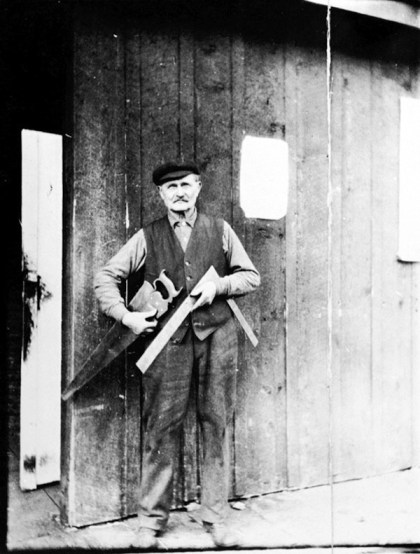
I have often heard the fact stated, and I have noticed it myself when looking through some of our workshops, that the mechanics’ places in this country, in nine cases out of ten, are filled by foreigners. The building trade seems to present no exception to this general rule. Very naturally the question arises, Why don’t our American youths learn trades? Some blame it to idleness, but I think that is not a satisfactory explanation. Others say the boys prefer to measure tape, and appear to better advantage than they would as professors of carpentry or knights of the trowel.
There is one thing certain, foreigners do not make any better mechanics than our own countrymen. Our boys are no less ambitious to-day than they were 40 years ago, but still the fact remains that they are turning their backs on trades. I propose to try my hand at a solution of this problem, leaving the readers to judge whether or not I am right. I propose for illustration to take my own trade, one which, had Carpentry and Building been printed 20 years ago, would have had thousands of better posted men in it than it contains to-day.
I do not think I am far astray in making the assertion that to learn the carpenter trade thoroughly, from the geometrical line which form its foundation to the most intricate work which many are called upon to perform, requires fully as much time and practice and study as any mechanical pursuit, and probably as much as many of the professions which pay a great deal better.
Right here I think lies the trouble. Of course we have poor men that are paid all they earn, so has any business, but just so long as the ambitious and worthy men are on a level with the poorer ones financially, and mechanical labor is no better paid than at present, our bench room will not be filled by American youths, for their ambition ranges higher than a hard-earned living and a living only.
Another thing which is overlooked by many is this, that after 25 or 30 years of hard work and exposure, spectacles have to be used in order to see the gauge line that but a short time before could be seen 5 feet away. Carpenters, after passing a certain age, are no more the useful mechanics they once were. As the quantity of work diminishes their wages are reduced—well, I will go no deeper into the subject, the idea alone is sufficiently suggestive.
It is quite probable that American youths do not take all this into consideration themselves. But their fathers help them out, and how often do we hear our bench men remark: “My son shall never learn this trade, if I can help it.” Can we blame the carpenter for such a decision? He is to a certain extent responsible for his boy’s hereafter, and he speaks from a personal experience which only years of hard work can give to any man. It is not hard work to which he objects, but it is the emptiness of pocket against which the hard work provides no remedy, and which renders the prospect of his old age gloomy and altogether uncertain.
He cannot help thinking of that home he left in the country years ago, when he was young and ambitious, to come to the city in order to try his luck. He remembers how he fell into the same groove that ninety-nine out of every hundred mechanics fall into, and how he has led a plodding existence from that day to this. It has always cost him the full amount of his earnings to live, hence it has been impossible to retrace his steps, or to place himself where surrounding circumstances would be more favorable.
Have I drawn the picture correctly? I leave my fellow readers to judge. The question is, Where is the inducement for an ambitious young man to learn a trade? Financially the carpenter’s trade is a failure; mechanically it is second to none. Of course some succeed and accumulate property, but the majority cannot soar and must grovel along.
R. S. T., New York City
Carpentry and Building – July 1880
—Jeff Burks